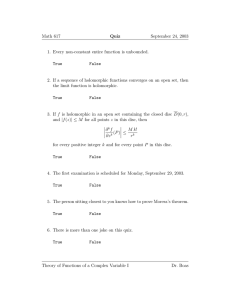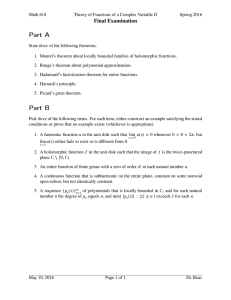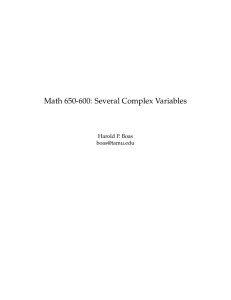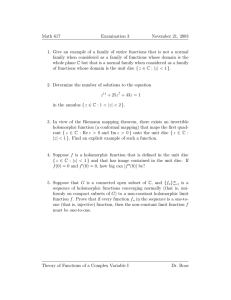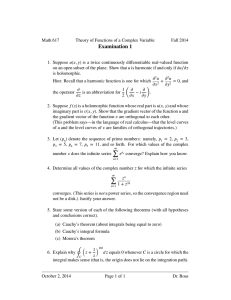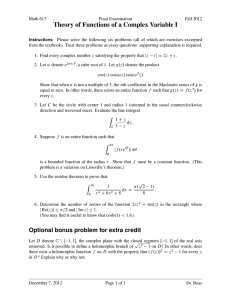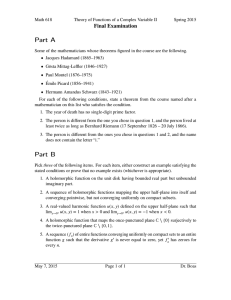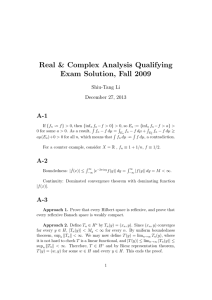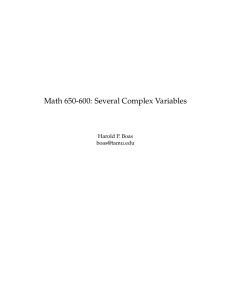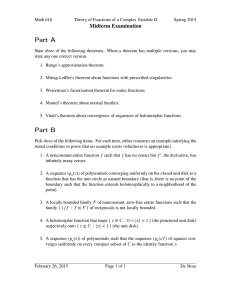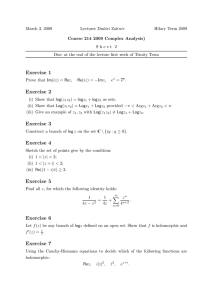Exercise on properties of holomorphic functions
advertisement
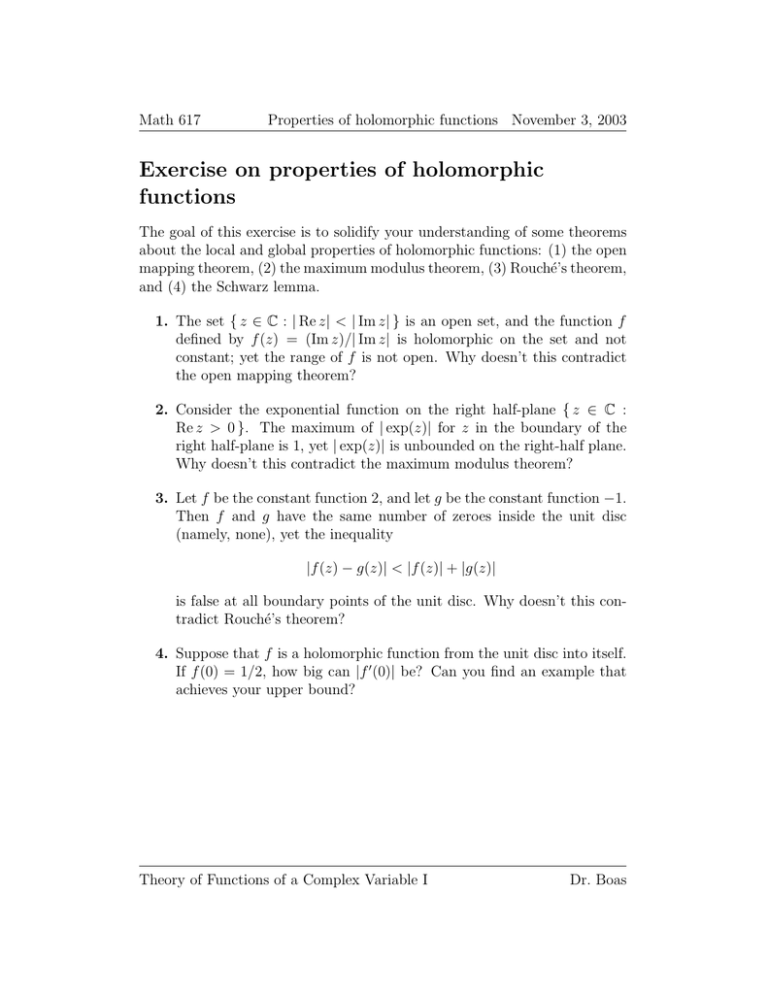
Math 617
Properties of holomorphic functions November 3, 2003
Exercise on properties of holomorphic
functions
The goal of this exercise is to solidify your understanding of some theorems
about the local and global properties of holomorphic functions: (1) the open
mapping theorem, (2) the maximum modulus theorem, (3) Rouché’s theorem,
and (4) the Schwarz lemma.
1. The set { z ∈ C : | Re z| < | Im z| } is an open set, and the function f
defined by f (z) = (Im z)/| Im z| is holomorphic on the set and not
constant; yet the range of f is not open. Why doesn’t this contradict
the open mapping theorem?
2. Consider the exponential function on the right half-plane { z ∈ C :
Re z > 0 }. The maximum of | exp(z)| for z in the boundary of the
right half-plane is 1, yet | exp(z)| is unbounded on the right-half plane.
Why doesn’t this contradict the maximum modulus theorem?
3. Let f be the constant function 2, and let g be the constant function −1.
Then f and g have the same number of zeroes inside the unit disc
(namely, none), yet the inequality
|f (z) − g(z)| < |f (z)| + |g(z)|
is false at all boundary points of the unit disc. Why doesn’t this contradict Rouché’s theorem?
4. Suppose that f is a holomorphic function from the unit disc into itself.
If f (0) = 1/2, how big can |f 0 (0)| be? Can you find an example that
achieves your upper bound?
Theory of Functions of a Complex Variable I
Dr. Boas
